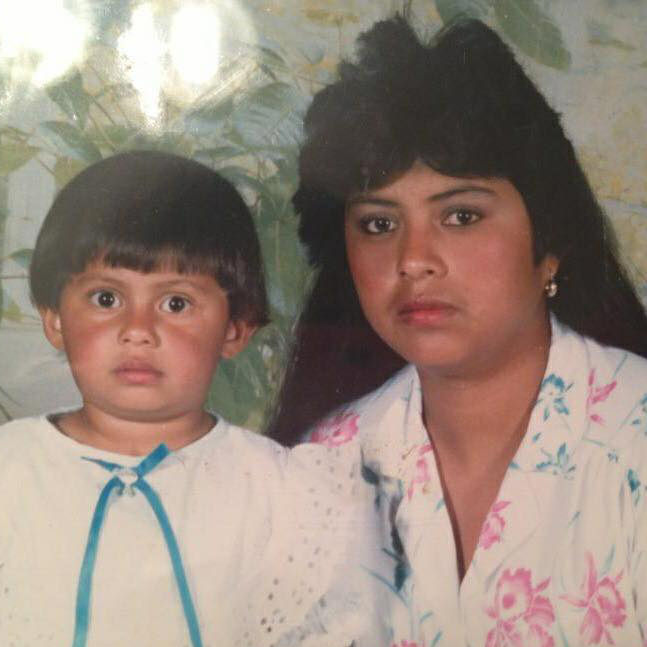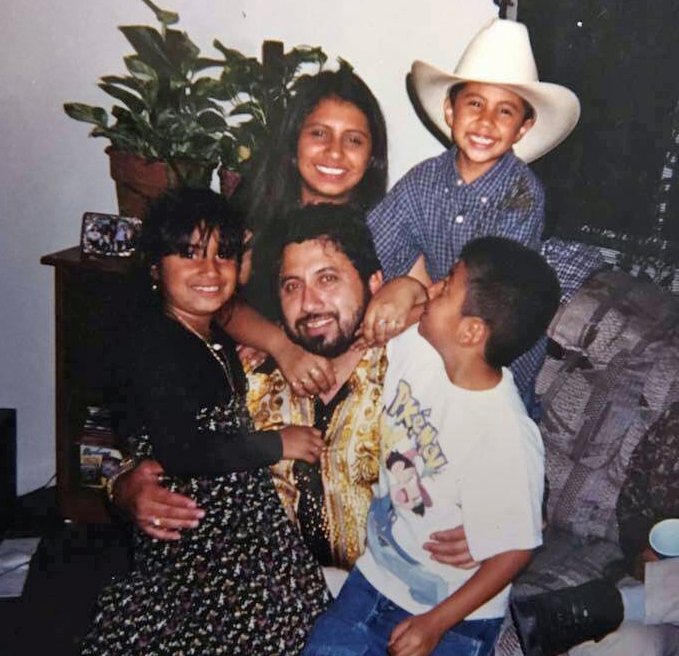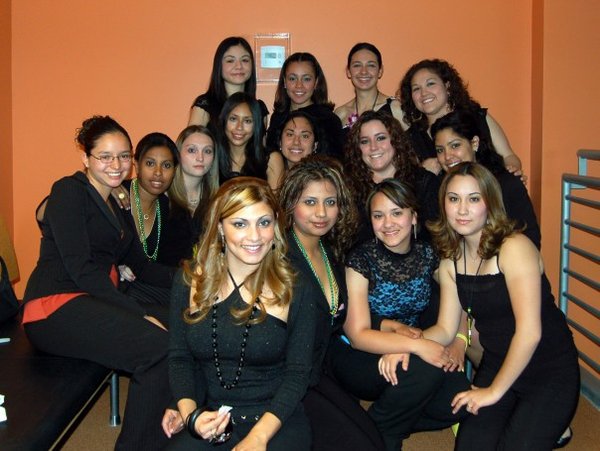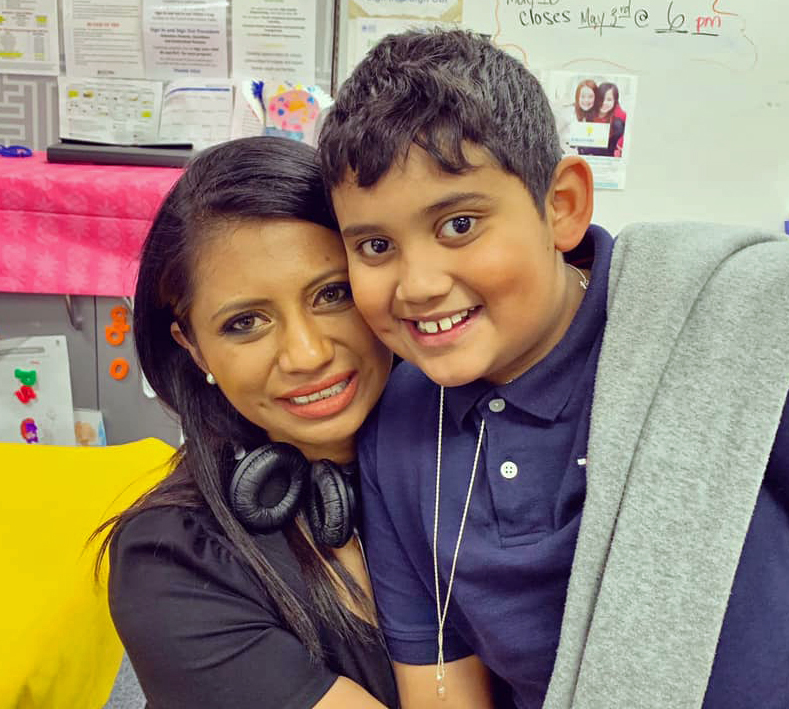
Giving voice to those who may not be heard
Sept. 15 through Oct. 15 is National Hispanic Heritage Month, a time to recognize the contributions of Hispanic and Latino Americans to our nation. Just like our customers, Denver Water employees have diverse backgrounds and we’re proud of our rich cultural diversity that reflects the 1.5 million people we serve.
Julieta Quiñonez was born in Durango, the capital of the state of Durango in northern Mexico, when her mother was 16 and her father was 22.
And the young family struggled to make ends meet.
Quiñonez’s mother cleaned houses for a living and her father worked on a small farm and delivered milk to people in nearby villages.
In search of a better life for their young family, Quiñonez’s parents decided to leave Mexico and move to California when she was 6 years old.
“I remember being very, very poor,” said Quiñonez. “My parents worked very hard, but we struggled with even basic things like buying food and clothing.”
Immigrating to the U.S. was a milestone in her young life, one that helped Quiñonez build the skills and confidence to be an advocate for her family and later the Latino community in Colorado.
Today, Quiñonez uses her life experiences to connect with others and give Denver’s diverse communities a voice. At Denver Water, she builds relationships with people of color in Denver through her work conducting community outreach for the utility's Lead Reduction Program.
When Quiñonez and her parents first came to the U.S., they did not speak English. She learned English in kindergarten and began interpreting for her parents at a young age.
“I don’t remember it being too hard for me to learn English, but I do remember feeling a strong responsibility to learn quickly. My parents didn’t speak any English, so I had to be their interpreter for everything — making doctor’s appointments, enrolling in school, going to the bank,” Quiñonez said.
Her father got a job as a janitor and her mother continued cleaning houses to support the family. Near the end of Quiñonez’s kindergarten school year, her oldest brother was born.
But the family of four continued to face challenges, and Quiñonez’s parents decided to return to the support of relatives in Mexico, where Quiñonez’s sister, the fifth member of the family, was born.
A few years later, Quiñonez was in third grade when the family returned to California and her youngest brother was born.
Quiñonez, the oldest of the family's four children, also was the only one in the family who spoke English. She felt it was her duty to help her parents and younger siblings integrate into society.
That's not unusual, Quiñonez said.
“Many Spanish-speaking families depend on their children as interpreters. We help our parents with everyday tasks, and advocate for our siblings when our parents cannot," she said.
“Although it was frustrating at times, I also felt empowered knowing I was helping my family.”
When Quiñonez’s father lost his job in 1996, the family moved to Colorado and shared a small house with two other families for two months while they got settled with new employment.
“Growing up, my dad always told us stories about what it meant to be an undocumented immigrant," Quiñonez said.
"There was always the reality of being deported. We knew there was a risk that maybe our parents would go to work and one day just not come home. It was a fear we understood well, and we lived with it.”
As Quiñonez got older, the challenges of being an undocumented immigrant began to hit closer to home.
Since Quiñonez and her sister were born in Mexico, they did not have Social Security numbers, so they couldn’t do things like get a driver’s license, apply for Medicaid or access government services. Her brothers, however, were born in the U.S., so they had different experiences and access to these programs.
This distinction became an almost insurmountable hurdle for Quiñonez when it was time to think about college.
“My parents grew up poor and they sacrificed so much for us to come to the U.S.," she said.
"There was never a question of whether I would go to college — they always instilled the value of education in us and strongly believed we needed to go to college to succeed."
But for Quiñonez, enrolling in college was not as easy as she anticipated. Being an undocumented immigrant, she didn’t qualify for most scholarships, and she’d be required to pay expensive out-of-state tuition to attend a Colorado school.
“I was crushed when I learned that my opportunities for higher education were severely limited,” Quiñonez said.
Disappointed, but not discouraged, Quiñonez got involved with Padres and Jovenes Unidos (Parents and Youth United), a local immigrant community group, and she began to have hope for her future.
During this time, the University of Denver was looking to recruit students who were active in their communities. Quiñonez applied and was accepted, along with being granted a private scholarship that paid a portion of her tuition.
“I was overjoyed — I finally saw my dreams coming true. But the price of tuition was still too much for me to pay,” she said.
Quiñonez’s prayers were answered when a friend from her local immigrant community group started a fundraising campaign to help raise money for her tuition. Amazingly, enough money was raised to pay the remaining balance of Quiñonez’s tuition for all four years of her college career.
This gave Quiñonez new hope.
But, when she walked onto the University of Denver’s campus as a freshman, Quiñonez felt different from those around her.
“Not only was I one of the few people of color in most of my classes, I was also from a low-income family. I felt different for sure,” she said.
Quiñonez began to seek out others like her. During her time at DU, she helped form the school’s first Latina sorority, Pi Lambda Chi.
“School was challenging, and I worked hard. I built a great support network, and they helped me get through it.”
In 2008, Quiñonez graduated with a degree in political science and sociology and a minor in Spanish.
“I was the first in my family to get a college education, and I was so proud to show my parents that their hard work, their sacrifices, paid off. I feel my experiences and my perseverance helped break the cycle of poverty for our family,” she said.
But challenges remained.
Being an undocumented immigrant, Quiñonez was unable to get a job using the degree she’d worked so hard to obtain.
After graduation, Quiñonez got married, had a son and started the process to get a Social Security number. Due to immigration stipulations, she was required to leave the U.S. and go back to Mexico while her husband petitioned for her permanent residency.
“My son was 2 years old and we had to go back to Mexico, not knowing when, or if, we’d ever be allowed back into the U.S. It was one of the hardest moments of my entire life,” she said.
After going through a long and difficult process, Quiñonez was granted permanent residency and was able to return to the U.S.
Quiñonez is currently working through the difficult, lengthy and expensive process to get her U.S. citizenship.
“The struggles I’ve been through and challenges I have overcome, give me a different lens to relate to others — to our various customers at Denver Water," she said.
"I understand the struggles and barriers they are facing, and I can be an advocate for them. I feel proud to have a job where I can help give a voice to those who maybe aren’t always heard.”





